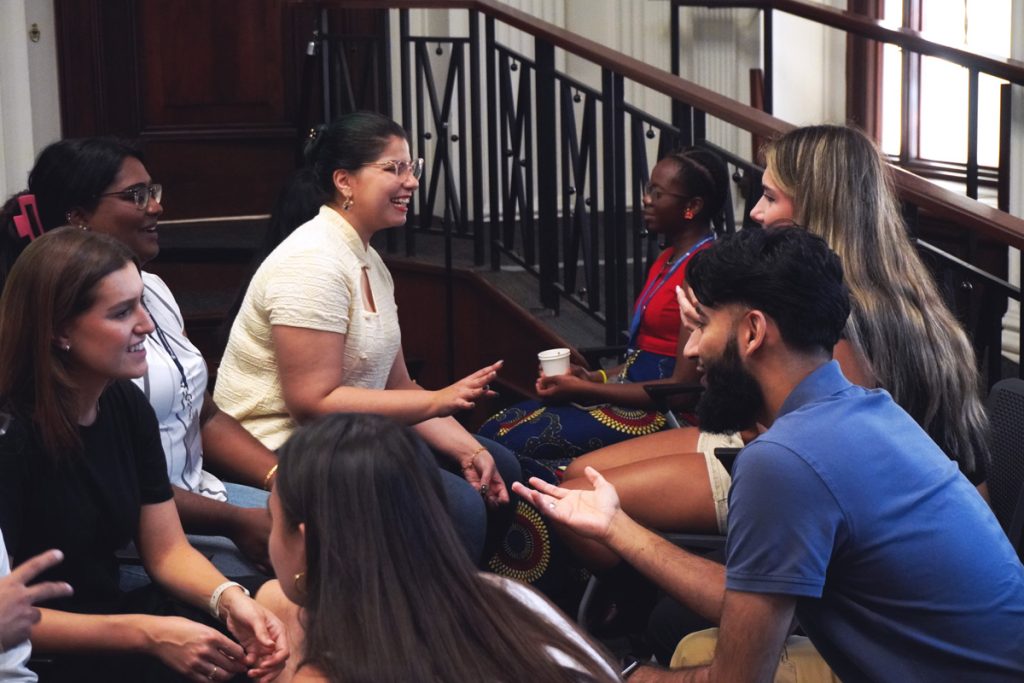Competency by design
Competencies are the outcomes of comprehensive learning experiences where skills, abilities, and knowledge are applied to specific tasks. The assessment of competencies involves demonstrating their application in real tasks or projects, known as performance-based learning.
Competency-based learning
At the TRP, we emphasize performance-based learning. Here, students develop and record key competencies throughout the curriculum and program. This approach aims to establish a clear connection between the program’s mission, learning outcomes, assessment tools, and the overall competencies expected of our graduates.

We believe that every graduate of the TRP must be able to demonstrate a level of proficiency in 5 core areas:
Persuasive Communication
Creative Problem-solving
Accountable Self-Management
Productive Collaboration
Knowledge Mobilization
Competency proficiency scale
At the TRP competencies are assessed based on the following proficiency scale.
Expert
Criteria
- Specialist/Authority level knowledge, understanding, and application of the competency
- Recognized by others as an expert in the competency and is sought out by others (expert in the area)
- Works across team, department, and organizational functions
- Applies skill across multiple projects or functions
- Able to explain issues with broader organizational issues
- Creates new applications or processes
- Demonstrates a strategic focus related to the competency
Novel moves that wow the audience.
Advanced
Criteria:
- Highly Developed knowledge, understanding, and application of the competency required to be successful (total mastery)
- Can apply knowledge outside the scope of one’s position
- Can coach or teach others about the competency
- Helps develop materials and resources in the competency.
Exemplary demonstration of skill(s).
Proficient
Criteria:
- Detailed knowledge, understanding and application of competency to handle non-routine problems and situations
- Requires minimal guidance or supervision/works independently
- Consistently demonstrates success in the competency
- Capable of assisting others in the application of the competency
Solid execution. Stable and confident.
Basic
Criteria:
- Basic understanding or knowledge needed for the task
- Basic understanding or knowledge sufficient to handle routine tasks
- Requires some guidance or supervision when applying competency
- Understand and can discuss terminology and concepts related to competency
Training wheels are off but the stability of the ride has room for improvement.
Limited
Criteria:
- Limited or no use of competency required for task
- Competency has been minimally demonstrated
- May have had limited opportunity to apply the competency
- May have had limited understanding of the competency
Not ready to remove the training wheels yet.
Not demonstrated
Not applicable or demonstrated.

